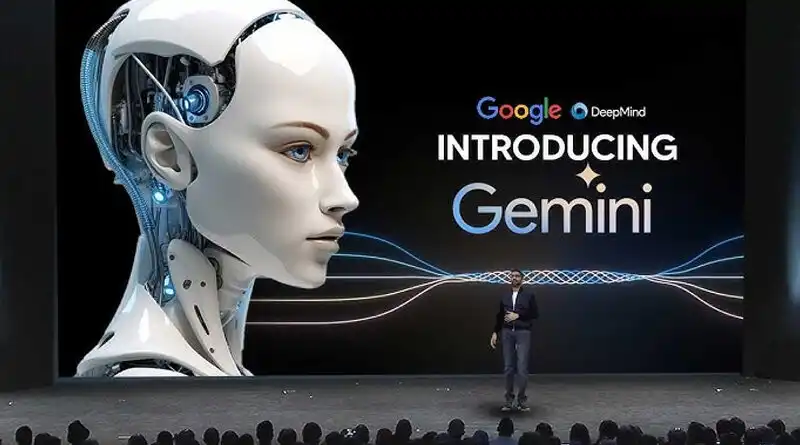Google Gemini
By - Blink AI Team / First Created on - June 6, 2024

Google introduces Gemini as a groundbreaking development in the field of generative artificial intelligence (AI), presenting it as a comprehensive suite of multimodal AI models. These models are engineered to operate seamlessly across a diverse array of devices and systems, regardless of their specifications. This article aims to elucidate the essence of Gemini AI and delineate the capabilities that one might anticipate from it in the foreseeable future.
Within this discourse, we shall delve into the intricacies of Gemini, shedding light on the various generative AI models it comprises, their functionalities, and the potential advantages they could bestow upon enterprises. Furthermore, we will highlight online educational programs curated by Google's leading experts, designed to impart essential knowledge on generative AI.
What Constitutes Google Gemini?
Google Gemini represents a collection of generative AI models devised to empower an array of digital offerings and services. This suite includes the already accessible Bard chatbot, among other projects yet to be unveiled. Gemini, positioned as a formidable rival to OpenAI's GPT models, is comprised of three distinct large-language models (LLMs) that vary in size and complexity. These models employ natural language processing (NLP) to adeptly interpret and react to user inputs.
The models within Gemini are characterized as "multimodal AI models," signifying their ability to process and respond to various types of content, including but not limited to text, video, audio, and programming code. Consequently, Gemini models have the theoretical capacity to execute a multitude of tasks, ranging from interpreting musical notations to synthesizing new images or generating textual content.
However, akin to OpenAI's GPT models, the performance of Google's Gemini models in executing certain tasks may not always be reliable or accurate. Therefore, while the technology heralds a multitude of future possibilities, it is prudent for users to manage their expectations regarding the current capabilities of this nascent technology and to critically evaluate the outputs on an individual basis.
Model Specifications
The Gemini AI suite encompasses three models, each designed for specific purposes and varying in size:
- Gemini Ultra: The most comprehensive model, engineered for the most intricate tasks.
- Gemini Pro: A highly scalable model, adept at a broad spectrum of tasks.
- Gemini Nano: The most efficient model, tailored for tasks executed on devices.
At present, Google has yet to disclose the specific tasks each model is capable of performing, with further details anticipated in the near future.
Capabilities of Google Gemini
Gemini models are multimodal, capable of interpreting and responding to a wide array of content types. This versatility suggests that Gemini models could potentially undertake tasks such as coding for applications, generating imagery, or crafting textual content, among others. The precise implementation of Gemini models by Google and other entities will likely be tailored to their specific goals and objectives.
A visionary demonstration video suggests potential future interactions with Gemini models, showcasing impressive capabilities. However, it is crucial to recognize that these demonstrations represent aspirational future possibilities rather than current realities. Like other LLMs, Gemini's models are expected to evolve and enhance their capabilities with ongoing advancements in AI technology.
Potential Advantages
Generative AI holds the promise of significant benefits. Research from esteemed institutions in 2023 indicates that generative AI can markedly enhance the performance of highly skilled professionals. Moreover, a report by McKinsey & Company suggests the potential for generative AI to substantially boost global economic productivity by automating tasks that currently occupy a significant portion of employees' time.
The consensus among researchers is that generative AI could play a pivotal role in helping employers reduce costs, elevate efficiency, and augment overall productivity.